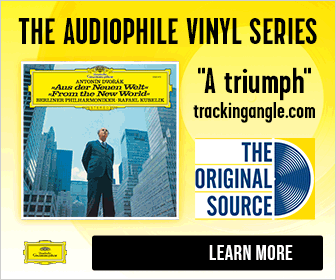Joni Mitchell Locked in an Asylum Box!
click bait, yes, literally not true, but metaphorically true.
The speculation below re digital is wrong. Patrick Milligan commented on an unboxing video that it’s from tape. I stand corrected and sorry I didn’t see obscure unboxing video. However, I stand by my sound comments. These records don’t sound great compared to previously released versions and the compression is noticeable and unwelcomed. Compared to nothing I’m sure they will sound okay. And glad they are cut from tape.
The four albums in this box document an artist on the move. She'd made "Blue", her excruciatingly personal album about break-ups, infatuations, personal fears and self-admissions and packaged them in the simplest arrangements, allowing in plain view all of the gut-spilling for her generation and as it turned out future ones to enjoy, wallow in and celebrate.
In 1972 she moved to David Geffen's new Asylum label and having bared her soul on Blue chose to bare the rest on the startling at the time inner gatefold photo taken by Joel Bernstein. Musically, Mitchell made a point by opening with a world view song—a prologue of sorts—observing but not exactly protesting life's unfairness. "Tuck your napkins in and take your share....And some get nothing though there's plenty to spare." By this time she'd made it big and had nothing to apologize for her success and she didn't, noting that some people "just watch the paint peel off." Not Joni.
The second song is among the most chilling smack and suicide notes put to melody. Henry Lewy's production and sound—and James Burton's ominous-sounding guitar— were appropriate to the darkness the song cast. "You're going to come now, or you're going to come later." Keen observations created from pretty much frivolous nothings, though the guy at the gas pumps on "Barandgrill" singing "Merry Christmas" like Nat King Cole is indelible. I always wondered about the apostrophe in "Some longing get's filled". Could be a typo.
The old insecurities arrive in "Lesson In Survival" as Mitchell negotiates through her relationship with another famous musician, though at the time unless you were paying serious attention to the rock and roll gossip, who exactly was "My sweet tumbleweed" didn't really matter. The price of fame title tune was reprised decades later by Billie Eilish who took one album to realize on the next one, "Things I once enjoyed (ah-ah), Just keep me employed now."
Could there be a more personal note than "Pack your suspenders, I'll Come Meet Your plane, No need to surrender, I just want to see you again." Talk about living your life in public! Or the personal invitation of "You Turn Me On, I'm a Radio". "Woman of Heart and Mind" lets everyone know what a tough person we're eavesdropping on. The closer is such personal "taking stock" it's difficult to believe anyone, not to mention someone so in the public eye, would deliver it. "It's the judgement of the moon and stars, Your solitary path, Draw yourself a bath". Then "Condemned to wires and hammers, Strike every chord, that you feel, That broken trees and elephant ivories, Conceal". Wow.
Somehow this album seems to get overlooked. It's Mitchell's final "folk" album though Tom Scott is there for the woodwinds and reeds, pointing the way towards Mitchell's next excursion.
The mood somewhat lightens on Court and Spark and the gatefold photo is the most glamorous Mitchell yet. The two openers are about enticement and joyful rejection. "But I couldn't let go of L.A., City of the fallen angels" ends the title tune. "We love our lovin', But not like we love our freedom", concludes "Help Me." "Free Man in Paris" is about David Geffen. He'd like to stay in Paris "unfettered and alive", but he's too busy "Stoking the star maker machinery, Behind the popular song."
On both "People's Parties" and "The Same Situation", Mitchell puts on display her full range of insecurities. Listening to this talented, beautiful, successful woman sounding like poor, poor pitiful me at a party (with good reason then unlike Mitchell) was somehow soothing. No doubt many fans took comfort of sorts along with sympathy.
Side two begins where side one left off: waiting for a date that doesn't show up and the self-doubt rolls in "It always seems so righteous at the start." Then comes loneliness and a pick-up bar. That one can't be autobiographical. On "Just Like This Train", she's thinking about a long term relationship dreaming about watching a lover's hair line recede, just after admitting to self "What are you going to do now, You've got no one, To give your love too" (like "get's", "too" can't be a typo or a grammatical error).
"Raised on Robbery" is the liberation, celebration, rock'n'roll song we've all waited for! But before closing out with the cover of "Twisted", the melody written by Wardell Gray (misspelled in the credits as "Grey"), who sadly passed away, a victim of needle-in-arm syndrome. Ross wrote the lyrics in 1952 at age 17. When Lambert, Hendricks and Ross covered it that same year, it went to #1. Most kids listening didn't know the song's origin but dug the lyrics and especially liked hearing Cheech and Chong's contribution. Joni had a sense of humor! Hadn't previously heard much of it on record.
Next up was the obligatory live album placeholder—a double LP originally sequenced for record changers (1-4, 2-3) but it had a lot going for it, starting with spectacular sound thanks to the team of, among others, Lewy, Ken Caillat and the Wally Heider Remote truck. The gatefold photo of the band: Tom Scott, Max Bennett, John Guerin, Robben Ford, Larry Nash and a beaming Mitchell says a lot about what that tour must have been like. Though by the middle of "Big Yellow Taxi" Tom Scott's "light jazz" signature began taking its toll. There are consistently great performances by Mitchell and sometimes the light jazz works, but other times it glistens things up too much as on "Carey" where the jauntiness of it all smothers the liberation. Still, if you like that sound, these guys play it to perfection.
Hissing of Summer Lawns is the box's grand finale masterpiece—a record too difficult for the tune-oriented folk Mitchell fans to grasp without doing a lot of work—and though it did peak at #4 on the Billboard charts, that probably was the get off the train record for many (former) fans. If this box does anything it will hopefully reacquaint or introduce to some a trailblazing album. "The Jungle Line" came a decade before Paul Simon's Graceland. Mitchell writes in the gatefold notes "It is not my intention to unravel that mystery (that the whole unfolded like one) for anyone, but rather to offer some additional clues." You'll have to get them yourself on the gatefold jacket!
The Sound—Uh Oh!
Comparing the originals to the reissues in the first Joni Mitchell box set (reviewed on my "previous endeavor") pointed out many flaws in the original mastering of Clouds and Ladies of the Canyon. Of course Song For a Seagull got a remix to remove much of the "over reverb". I even thought the box's Blue beat the original, though the original is very good and the Hoffman/Gray one is also really good though which you'd prefer there is "system dependent".
Even though I wrote that Bernie cut that set from tape (other than the 1st album remix), I'm having second thoughts. There's no doubt the box's mastering is better than the original on Clouds and Ladies of the Canyon and Blue is arguably better than the original. The Hoffman/Gray reissue from tape has an EQ signature I don't like but on the right systems that one could be best.
Now that I've spent a great deal of time listening to this box and various versions of originals, I'm thinking that Bernie cut the first box from digital files prepared by Patrick Milligan (if in fact he does such things). It worked on that box. It does not work on this box. The sound here is a mixed bag in terms of equalization but no doubt Milligan (if he was responsible for prepping files) compressed dynamics and squashed the hell out of these great recordings. Would BG add this much compression?
The one least damaged is For the Roses. You can hear "the digital" though (or something that sounds like it), especially since the original sounds so pristine and superb. I've been playing the same Presswell promo copy (I think I cut a radio commercial for this release) since 1972 and it still sounds gorgeous: liquid, three-dimensional, with transient attack perfectly sharp followed by rich sustain and then generous decay. It's a sonic masterpiece. The reissue loses the air, the space, the transient attack but it kind of makes up for a bit with firmer bottom end. Could the tape have so deteriorated? It's possible. Still, find yourself an original 1841 Broadway white label Asylum original (the non-promo label was white as well. Atlantic distributed Asylum at that time, so 1841 Broadway). I even compared it to an original U.K. pressing mastered at E.M.I. and that's a bit brighter than the original but very cleanly mastered and it has tauter bass than does the original.
 Court and Spark is another mixed bag. I compared five pressings: an original white label promo, a U.K. original (they painted title in black), the D.C.C. Compact Classics version mastered by Hoffman/Gray, the Chris Bellman cut from tape and plated and pressed at RTI for Tom Biery back when WEA let him "run wild" through the vaults, and this box set's version plated and pressed at Optimal. As it turns out, the original is bass shy. The Hoffman/Gray, the Chris Bellman and Bernie's all get the EQ correct and very similar (though the box's top end is muted) but the box's from a high res file sounds compressed. Too compressed! If you love this album get the DCC or the Bellman cut. Both honest and equally good. As you can see, the jacket color is "all over the map".
Court and Spark is another mixed bag. I compared five pressings: an original white label promo, a U.K. original (they painted title in black), the D.C.C. Compact Classics version mastered by Hoffman/Gray, the Chris Bellman cut from tape and plated and pressed at RTI for Tom Biery back when WEA let him "run wild" through the vaults, and this box set's version plated and pressed at Optimal. As it turns out, the original is bass shy. The Hoffman/Gray, the Chris Bellman and Bernie's all get the EQ correct and very similar (though the box's top end is muted) but the box's from a high res file sounds compressed. Too compressed! If you love this album get the DCC or the Bellman cut. Both honest and equally good. As you can see, the jacket color is "all over the map".
 The live album too, is overly compressed and dull sounding. It's a live album but the outdoor amphitheater "air" is gone.
The live album too, is overly compressed and dull sounding. It's a live album but the outdoor amphitheater "air" is gone.
The worst offender though is Hissing of Summer Lawns, which is way over compressed. The original was not spectacular either, but it was more open than this new reissue. There are two very good ones to choose from. Speakers Corner did one many years ago, cut by Kevin Gray at his old mastering facility, AcousTech and pressed at Pallas and it sounds great! Full dynamics and frequency response. The jacket's not great. They didn't bother with the snake handler "relief" on the front cover but never mind. The sound is great. And there was another from the Tom Biery days cut by Chris Bellman, plated and pressed at RTI. That's really the one to get.
 My conclusion: As good as Milligan's work was on the first box set (assuming he actually prepped files—I'm trying to get the facts), is as bad as he's done here. Overly compressed, and dull sounding overall. And can we please stop with "Mastering: Bernie Grundman" when what's meant is: Bernie cut from digital files"? (or not?) I have reached out to Bernie to confirm this was from files, or really to just find out how it was done. If I'm wrong, I'll let you know. I just find it difficult to believe that Bernie Grundman, using the same system as Chris Bellman did a decade ago, could produce a way inferior sounding result—unless the tapes collapsed over the last decade.
My conclusion: As good as Milligan's work was on the first box set (assuming he actually prepped files—I'm trying to get the facts), is as bad as he's done here. Overly compressed, and dull sounding overall. And can we please stop with "Mastering: Bernie Grundman" when what's meant is: Bernie cut from digital files"? (or not?) I have reached out to Bernie to confirm this was from files, or really to just find out how it was done. If I'm wrong, I'll let you know. I just find it difficult to believe that Bernie Grundman, using the same system as Chris Bellman did a decade ago, could produce a way inferior sounding result—unless the tapes collapsed over the last decade.
The presentation is deluxe: the box is beautiful, the jackets are faithful reproductions of the originals and there's even a nice insert with a note from Neil Young and a color portrait of him Mitchell painted in 1975. So yes, Joni is locked in the box, imprisoned by unnecessary compression and excessive high frequency attenuation. A major disappointment. It could have and should have been better had more time been spent mastering from tape or at least staying away from the compressor. The sound rating is higher than it should be, simply to acknowledge the high quality of the original recordings. I'd give it a generous "6" if the rating was for "reissue sound quality". I wish this review could say otherwise, but it's what I heard.















































